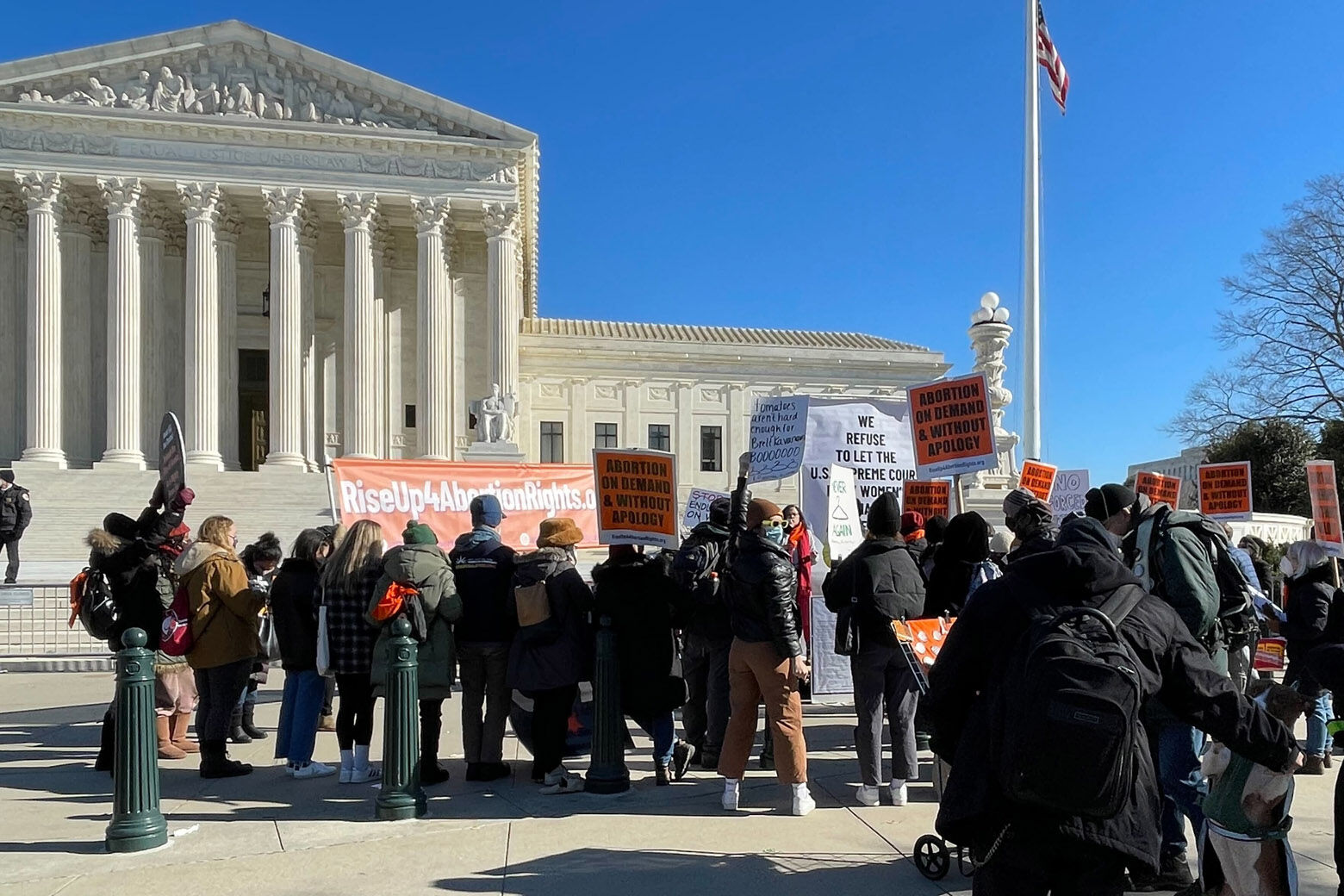
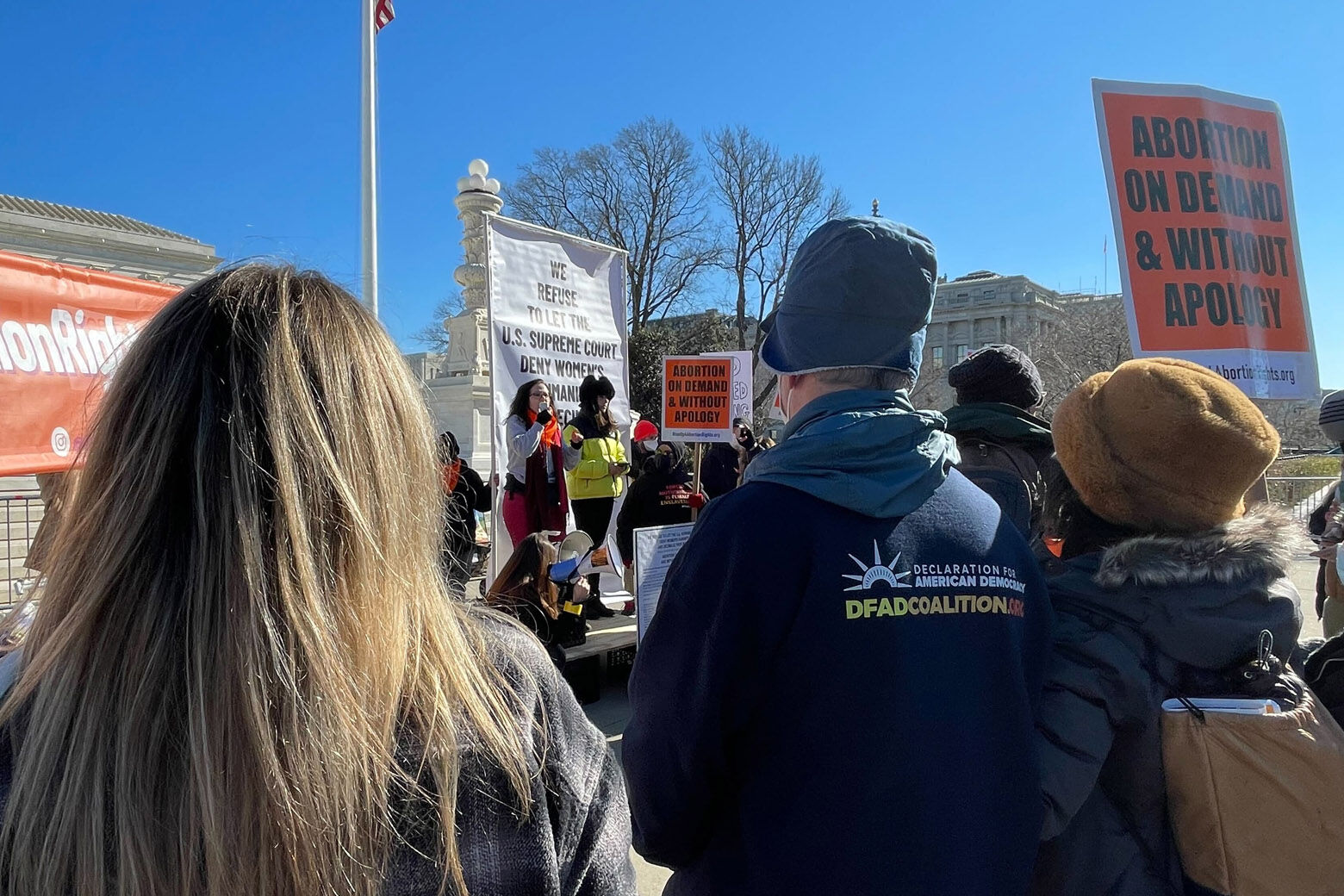
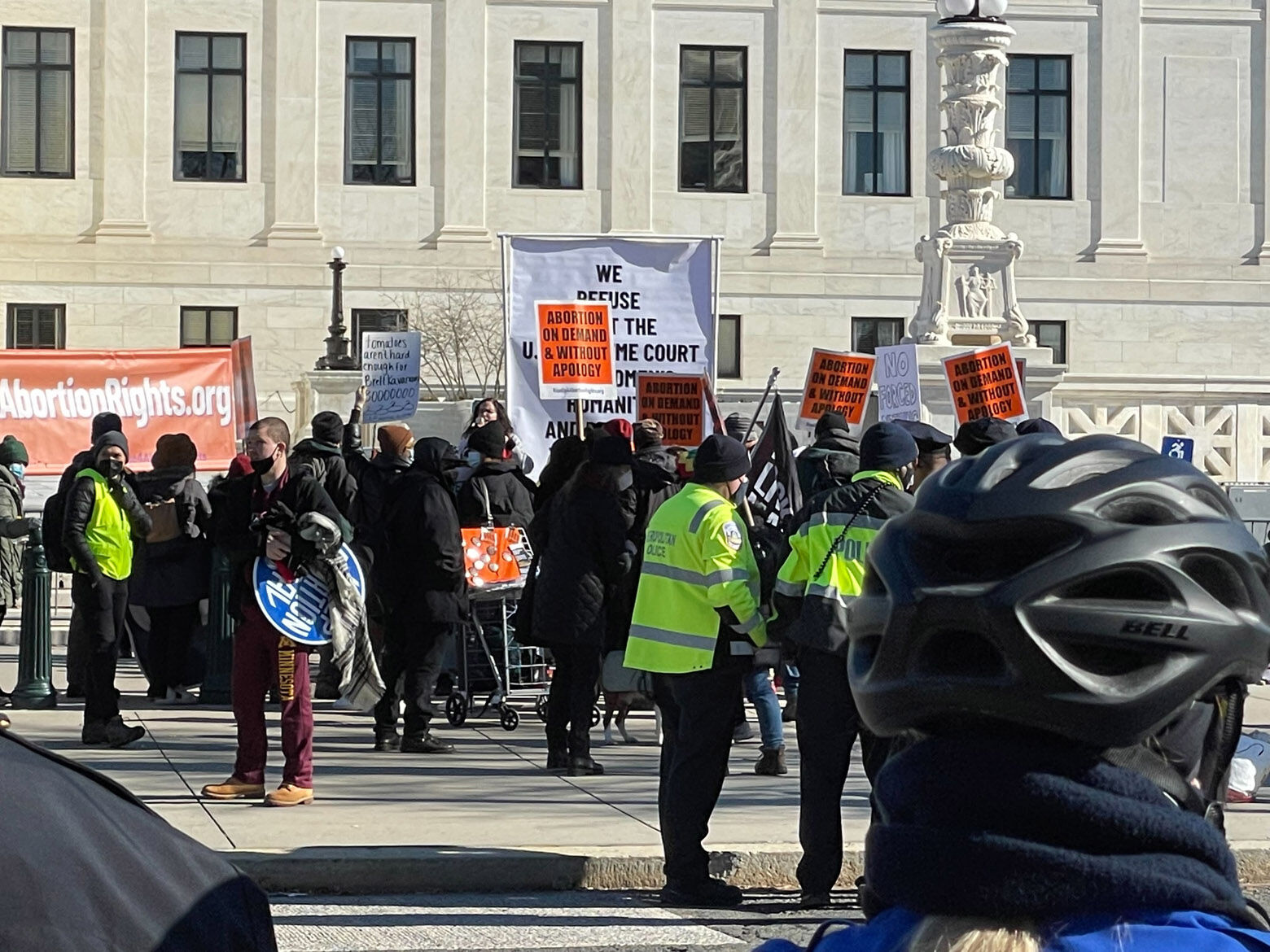
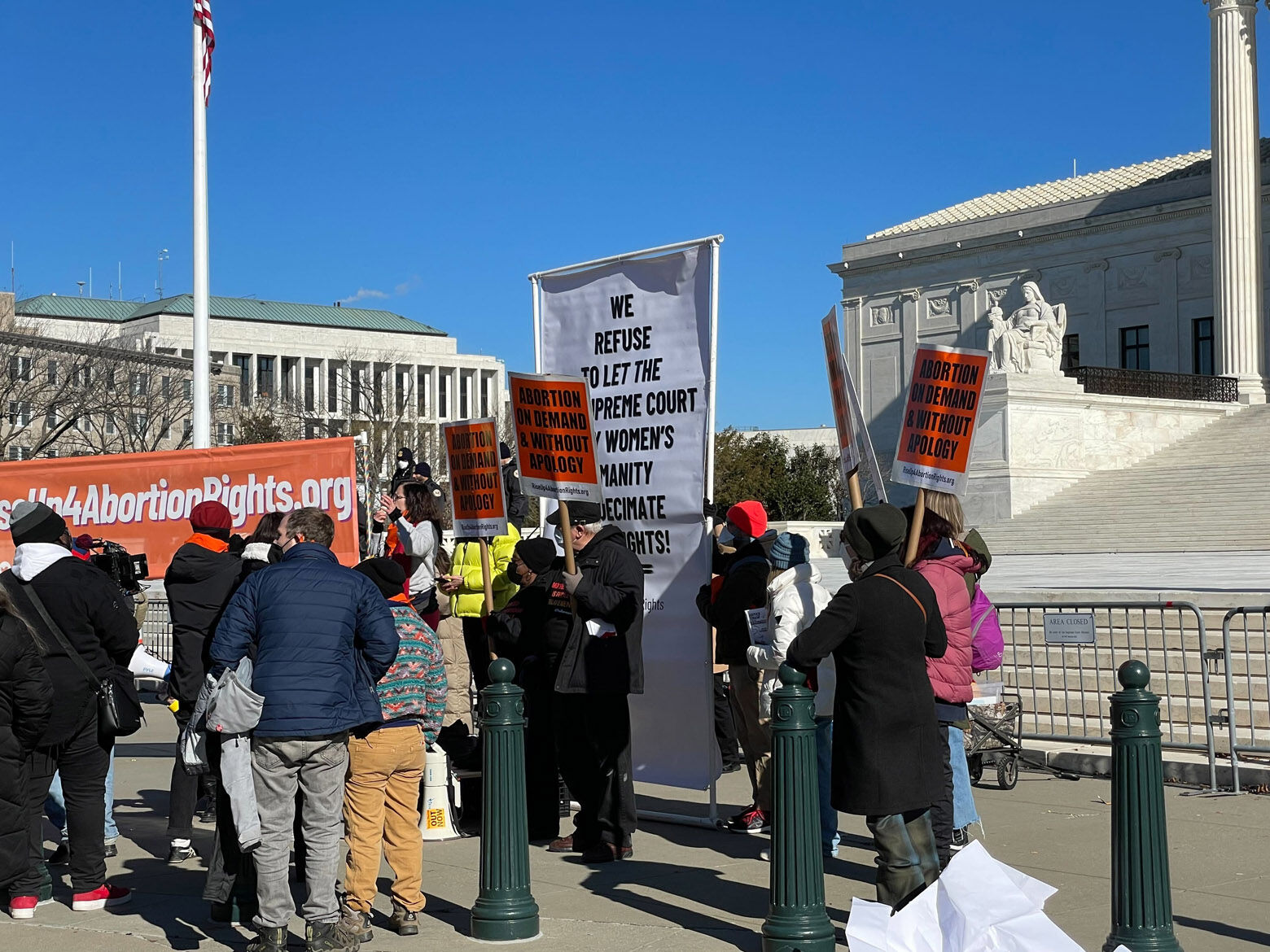
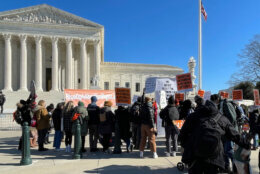

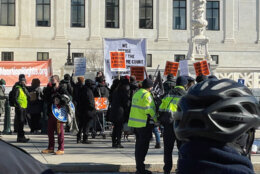
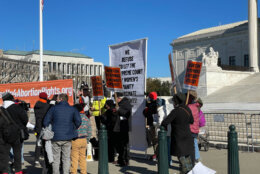
On the 49th anniversary of Roe v. Wade, the Supreme Court decision that legalized the right to abortion in the U.S., supporters of those rights gathered in front of the high court Saturday in response to legal threats that could overturn the 1973 decision as early as this spring.
The rally, organized by Rise Up 4 Abortion Rights, comes one day after abortion rights opponents held their annual March for Life in D.C.
In recent polling by Gallup, only about 30% of Americans are supportive of reversing Roe v. Wade.
Katea Stitt, an abortion rights activist, joined a small group of women at the U.S. Supreme Court steps this weekend. Their message to court justices was loud and clear.
“I would say to the Supreme Court, just hands off our bodies,“ Stitt said.
Merle Hoffman founded a clinic in New York in the early 1970s that offered abortion services before the Roe v. Wade decision. She joined abortion rights supporters this weekend because, “They cannot take away a basic right [for] half the population.”
But the court is reviewing a Mississippi case that could roll back the landmark decision. If that happens, fellow demonstrator, Gabriela Vieria, says she fears for other women.
“My friends or my younger cousins would have to have obstacles. It’s scary.”
In Texas, a six-week ban, known as SB8, was recently passed that allows private citizens to sue abortion clinics, or anyone else supporting an abortion after fetal heartbeat is detected, which is about six weeks into most pregnancies.
Most notably in Texas and Mississippi, legal challenges to Roe v. Wade are taking place in courthouses and statehouses across the U.S., as opponents to abortion rights seek to add restrictions that could, effectively, remove access to abortions for millions of women.
More than 20 states already have laws on the books to ban or dramatically restrict abortion if Roe v. Wade is overturned.
Less than a month into the 2022 legislative sessions, battles over the future of abortion already are setting up around the U.S. Republican lawmakers are proposing new restrictions modeled after laws in Texas and Mississippi that present a direct challenge to the landmark Roe v. Wade decision, while some Democratic-led states are working to preserve or expand access.
In Virginia, House Delegate Nick Freitas has proposed a bill last week that would ban most abortions after 20 weeks.
On the campaign trail in September, newly inaugurated Virginia Gov. Glenn Youngkin said during a debate that he is opposed to abortions with the exception of cases involving rape, incest or where it is necessary to save a mother’s life. He also said that he wouldn’t have signed Texas’ law banning most abortions, but indicated he would support a “pain threshold bill.”
In a statement released Saturday, President Joe Biden and Vice President Kamala Harris said the right established under Roe “is under assault as never before” and they said they were committed “to ensuring that this country is not pushed backwards on women’s equality.”
“We must ensure that our daughters and granddaughters have the same fundamental rights that their mothers and grandmothers fought for and won on this day, 49 years ago,” they said.
The Associated Press, and WTOP’s Gigi Barnett and Jessica Kronzer contributed to this story.








